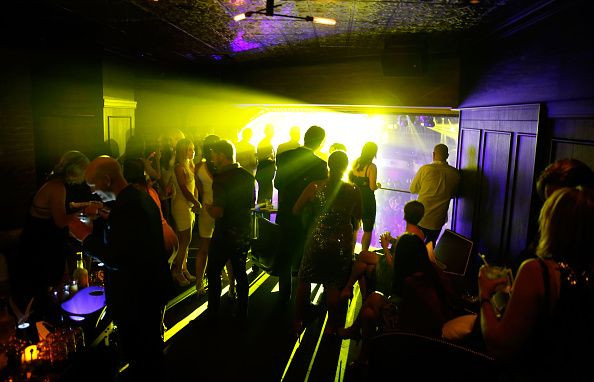Raw Cacao — The Newest Drug To Hit The European Dance Club Scene

Although we know cocoa, the main ingredient in chocolate, for its role in sweet treats, some Western European party goers are trading alcohol and some illicit drugs for highly concentrated doses of the substance. It’s not sweetness they’re after, but the feelings of euphoria and relaxation such high doses can induce when drunk or inhaled.
In downtown Berlin, you’ll find Lucid, a monthly dance party where clubbers sway to the flashing strobe lights and electronic music, Ozy reported. Lucid is one of the most popular cocoa clubs in Western Europe; you won’t find a single drug in sight, that is, depending on your definition of drug. Instead, partygoers in this venue enjoy the energetic rush they get from cocoa, and clubs such as Lucid in Germany pack the substance in sweet drinks to keep partiers going all night. There is even a device that allows you to snort the substance if you are a real chocolate connoisseur.
Far before cocao became the sweet treat we recognize today, the substance was used by the ancient Aztecs and Mayans in rituals and ceremonies due to its endorphic properties, Newser reported. However, rather than distorting reality or inducing a feeling of intoxication, cocoa’s effects on the body are far less extreme.
According to The Telegraph, the active components in cocoa boost the levels of serotonin and endorphins in our brain, giving a pleasurable sensation. In addition, a 2009 study found that chocolate also had a calming effect and can help reduce stress levels and lower blood pressure. In addition to affecting our mood, research has suggested that cocoa can even improve brain power and memory. Habitual consumption of chocolate is also linked to reducing the risk of dementia, diabetes, heart disease, and even the common cold. What’s more, despite the high calorie count in chocolate bars, cocoa could help to control body fat levels and surprisingly, individuals who eat chocolate more frequently may actually be thinner than those who eat it less.
But as for creating a psychedelic high, “chocolate scientist,” Dr. Catherine Kwik-Uribe, the director of research and development for Mars Symbioscience, a scientific division of Mars, Incorporated, told Ozy that the mood-boosting effects of cacao are so subtle that the “high” experienced by many clubgoers is probably the placebo effect.
Still, in clubs like Lucid, cocoa is taking the place of alcohol and many illicit drugs, such as “Molly,” and while it's not usually a good idea to replace one habit with another, doctors urge that cocoa use doesn't seem to be particularly dangerous. Other than irritating the nose or being accidentally inhaled if snorted (and let’s be fair, it’s probably not a good idea to snort any substance in excess) there seems to be no danger to using cocoa. In addition, The Independent Ireland reported that it’s likely that this “phase” will pass before it can become a serious health danger to users.
The cocoa clubs, like the Daybreakers parties across the globe in New York, are part of a health and body-positive movement that urges clubbers to stay clear of drugs and alcohol and gives them a safe venue to let loose and dance.
Published by Medicaldaily.com



























